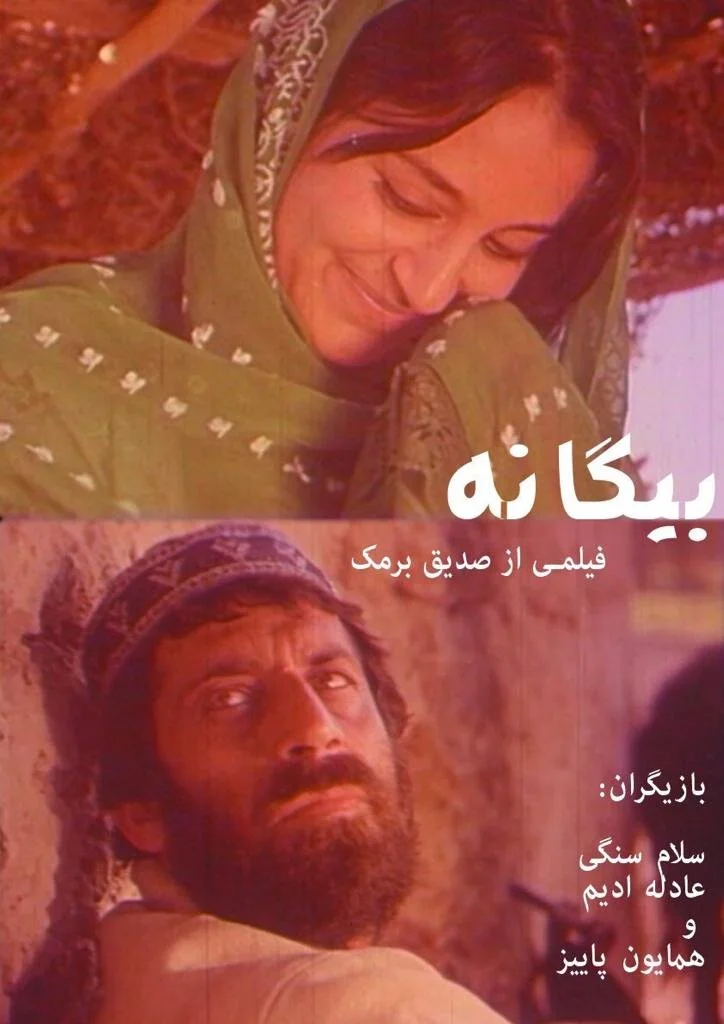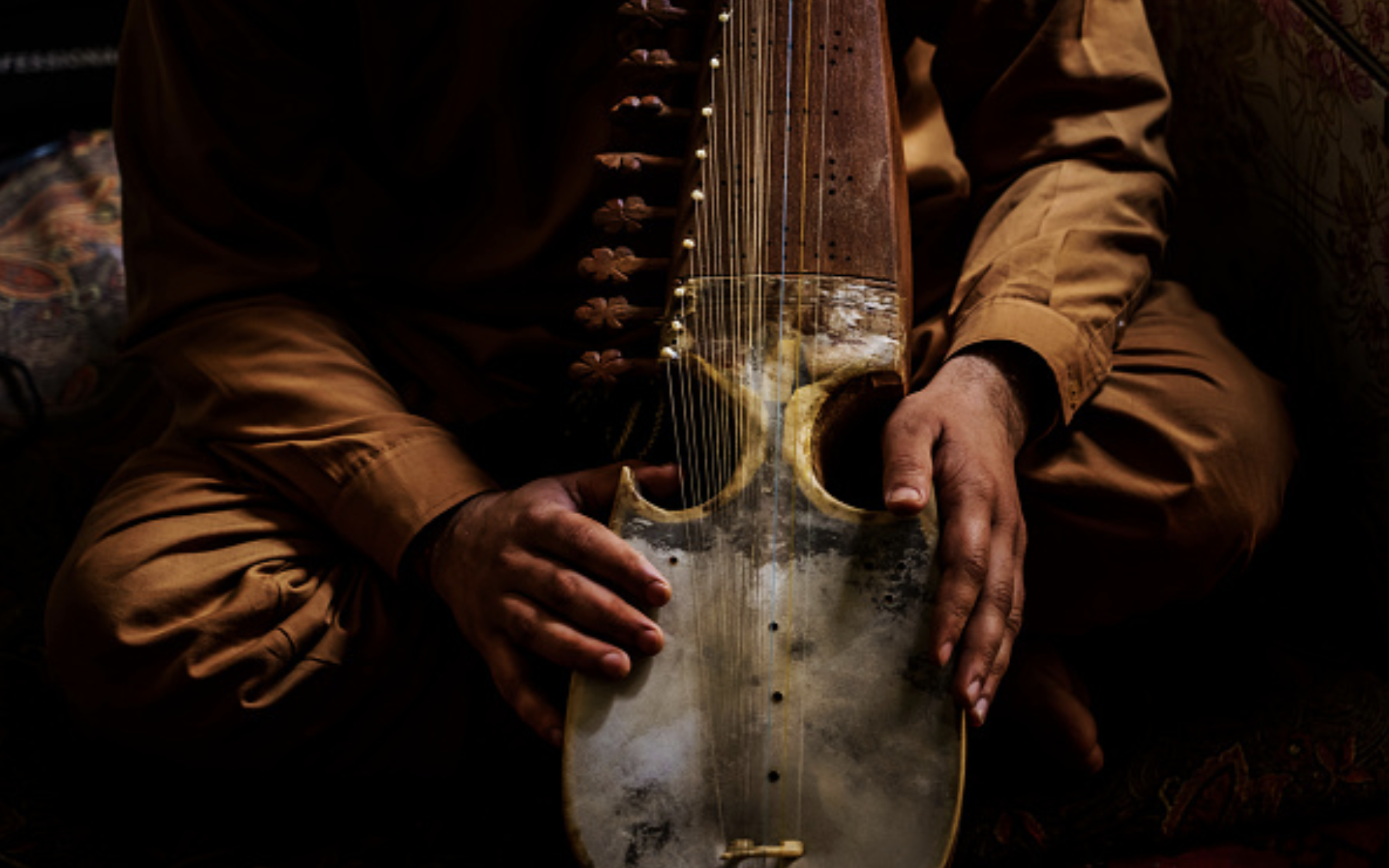تحقیق | Research
The Sounds of Kabul
What can histories of radio, music, and popular culture tell us about the global flows of information and knowledge exchange that existed between diverse communities across space and time? To what extent do they challenge intellectual and public discourse about the peoples, cultures, and societies that encompass the Asian expanse? “The Sounds of Kabul: Radio and the Politics of Popular Culture in Afghanistan, 1960-79” broadly centers on these questions and highlights generative cross-border cultural exchanges among communities in Central and South Asia, the Middle East, and beyond.
Source: Afghan musicians featured on the cover of Pashtūn Zhagh magazine published by the Ministry of Information and Culture & Radio Afghanistan, August 23, 1968.
My research re-centers Afghanistan as a major producer of music, performing arts, and mass media in the Global South. Through poetry, literature, and sonic collaborations, I recall more than a thousand years of textual history and even more in cultural memory that connected people across space and time. As the first historical study of Afghanistan to use archives of sound, The Sounds of Kabul uncovers the stories of musicians, artists, performers, and cultural producers who revolutionized the radio by forging new understandings of the self, family, and gender roles. Restoring this aural landscape, I argue, is vital for understanding the limits of static national histories that have muted connections, movement, and cultural exchange between peoples across space and time.
Archives
My research draws on self-conducted oral histories and archives from around the world in multiple languages—Arabic, Persian, Pashto, Tajik, Urdu, and English—housed in Afghanistan, India, Great Britain, France, Tajikistan, and the United States.
The Sounds of Kabul makes use of primary audio, visual, and textual sources that come together to form an alternative archive. At the foundation of this archive are digitized recordings of music and programs aired on Radio Television Afghanistan (RTA), a collection of self-conducted oral-histories from former RTA broadcasters, musicians, and cultural producers, alongside state-controlled and regionally circulating Afghan magazines, journals, and photographs. Together these unique sources, along with other untapped materials, are read against the grain to advance a recent “acoustic turn” in South Asian and Middle Eastern historiography, to broaden the methodological horizons of this scholarship, and to elucidate what the transnational history of radio broadcasting can tell us about the creative and dynamic past of Afghans and their diverse collaborators.
Source: excavatedshellac.com
Radio & Decolonizing History from the Global South
Underlying my scholarly research projects is a commitment to exploring the experiences of marginalized groups in ways that cut across the neat binaries of Us and Them, Civilized and Barbaric, Modern and Backward, Occident and Orient, bottom-up and top-down history. My research serves to change the ways outsiders understand Afghanistan, and how Afghans have understood their own past. I have spent nearly the last decade investigating how Afghans engaged with global communication technology and how they profoundly shaped and contributed to the making of art, music, poetry, and literature across regions, time, and space. These mediums reflect that Afghans were at the forefront of ideological struggles that spanned the globe.
Forthcoming Projects:
Film & Afghan Globalism
My new research explores how Afghan films are reflective of artistic and performative influences found throughout South Asia and the Middle East. Examining the influence of these genres in Afghan cinema as well as the portrayal of Afghans in these respective repertoires allows for a critical reassessment of the hegemonic “West and the Rest” binary. Instead, this project engages with other globalisms—other ways of imaging one’s place in the world—rooted in the Global South.
Siddiq Barmak’s 1987 released, award-winning short film, The Stranger (بیگانه) featuring Adela Adim and Salam Sangi.
Music and the Poetry of Resistance(s) in Afghanistan
A research collaboration with Munazza Ebtikar, Oxford University, explores the music and poetry produced in the Persian-speaking regions of north and northeastern Afghanistan. Supported by a 2022-2023 grant through the American Institute of Afghanistan Studies (AIAS), this project combines anthropological and historical perspectives to expand existing literature on the peoples and cultures of Afghanistan by further nuancing the making and place of music and its relationship to war, memory, and political dissent. Through this project we further investigate how the past and present local resistance in these regions is motivated and explained by various local factors, including a legacy of anti-imperial struggle, ethnicity, gender and class dynamics, and local interpretations of Islam. With the partnership of Professor Robert Crews, this project has also garnered a 2024 Humanities Seed Grant from Stanford University’s Public Humanities program for the creation of a digital repository and archive of resistance music from Afghanistan.
An essay based on the initial findings of this research is titled “Sonic Narratives of Resistance and Cultural Memory in Afghanistan” (2023) and appears in The New Paradigm, the digital magazine of the Institute for New Global Politics. The essay discusses how musical artists from the Persian speaking northern regions of Afghanistan are emerging as some of the fiercest resisters against the Taliban.



